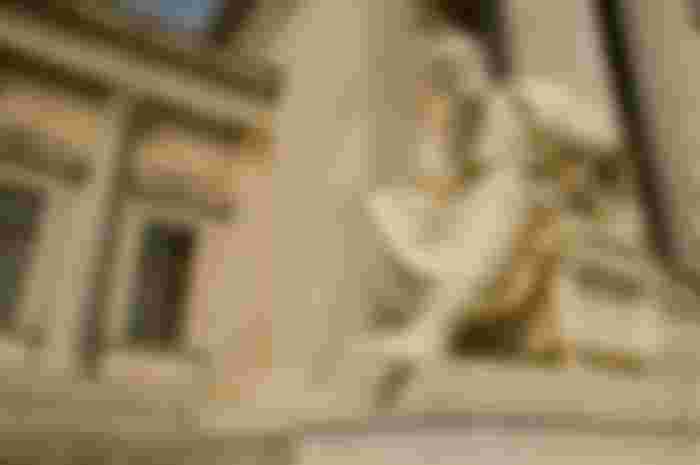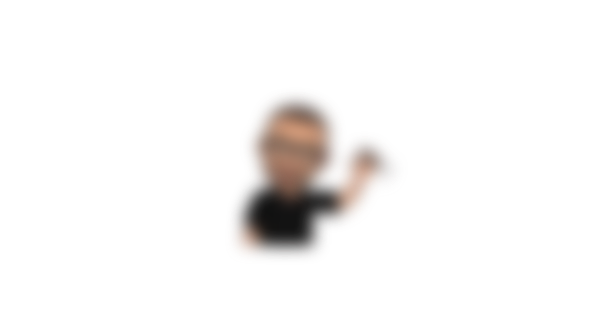Hello Dear friends

As you have seen I am a fan of the thought of Heraclitus and I try to be a curious knower of his thought and for that reason, in this post, I express what two philosophers later than him have contributed, or that have taken the idea and have included him in their thoughts and reflections, and I try here to expose in a simple but substantial way, the interpretation that these later philosophers have made to his thought. Among the philosophers that we will mention we have Plato in his dialogue "Cratilo" and Nietzsche in his book entitled "the pre-Platonic thinkers".
1. Heraclitean Philosophy as interpreted by Plato
In the work of interpretation carried out by Liliana C. Sanchez makes it clear that her paper is not an exhaustive analysis of the Platonic dialogue The Cratilo, but it tries to build a sketch on the Platonic interpretation of Heraclitus, it seeks to point out how Plato makes use of the doctrine of the perpetual flow.
This paper is divided into three sections, which I will comment on and explain as I go along. The first one, entitled "Heraclitus in the Cractylos". In this section, Hermogenes and Cratilo try to give an answer to the question about the accuracy of the name, but in this attempt, they develop a link between the name and what is named. The virtue of the name will thus be in its relation to the thing named". In the dialogue two currents are presented, one taken by Hermogenes and the other by Cratilius, these positions are the conventionalist and the naturalist respectively. But, it is appropriate to specify each one. The naturalist supports the non-arbitrary link between both elements, i.e. the name and the named, and on the other hand, the conventionalist supports the relationship between the name and the named, by means of agreements, uses, customs and norms.
What Cratilo says about Heraclitus in the dialogue according to the author, certain regularities can be established, for example the mentions of Heraclitus appear in etymological explorations that explain the interest of the dialogue in the accuracy of the name and its relationship with a vocabulary related to the movement. These elements, together with the doctrine of perpetual flux configure the appearance of the vocabulary relative to motion that emerges from the Socratic discourse in the refutation of the two theses (conventionalist and naturalist) on the exactness of the name.
The second section is entitled "Heraclitus and the examination of conventionalism", the first mention they make about Heraclitus is with a textual quotation while the conversation between Hermogenes and Socrates takes place in the dialogue between 383rd and 428th, which was given the name of "refutation of conventionalism". The textual quotation is: "everything flows and nothing remains", a phrase that tries to summarize the thought of Heraclitus.
Now, Socrates tries to clarify during this first conversation that the accuracy of the name should not be by "agreement", "consensus", "convention" and "norm" as it is not very satisfactory, because Socrates does not admit the convention to name things. This happens because if we were to name things by convention, in each polis we would have different names for the same things. Then, there would be a problem because the relation between name and named would be somehow arbitrary.
Then, in order to be able to somehow speak of "agreement" or "consensus" when speaking, there must be a criterion valid for all when imposing and using names: "this criterion could be the existence of some kind of conscious being that underlies things and is reflected in the names" and by this way, the concept of the philosopher Ephesius on the perpetual flow is introduced. With what has been said so far, we could say that for "naming" there is an instrument: "the name" and if this name is correct it will reflect the being of the thing it names. This will reflect its accuracy and at the same time the difference with other things since in naming we could speak of "truth". Although there are true and false speeches, the true ones will tell us about things as they really are.
In conclusion, the nature of the name should not be something arbitrary or "capriciously artificial", since it would not be fair to call it "exact" or "correct". There must then be a criterion that assures us of the name as a name. This will allow the teaching of such a thing, i.e. what we designate correctly is open to be taught and transmitted. This will be teachable since the name will be similar to the thing named. That is why the convention is not for Socrates unsatisfactory. Thus the use of the theory "everything flows", that is to say, this perpetual flowing refutes conventionalism in a forceful way since it allows the demonstration that there is something that essentially underlies things. And this is a guarantee that the names must point as closely as possible to the essence of the thing they name and not to individual seeming, that is to say, conventional seeming.
And finally, the third section "Heraclitus and the examination of naturalism". Then in the dialogue, there is another moment, and that is that after the end of the conversation between Socrates and Hermogenes, there is the dialogue between Cratilus and Socrates, the part that begins in 428th and ends with the end of the dialogue if the first part was called "refutation of conventionalism", this one is known as "refutation of naturalism". Before we begin to explain in some way what L. Sanchez's text expresses from this third moment onwards. It must be said that Cratilus and Socrates share the idea that the name must express the essence of the thing named. And if this were so, names would help us enormously in knowing, distinguishing, and teaching the things of the world.
"Cractilus argues that (i) only correct naming is possible and since naming is a necessary part of speaking, he concludes that the correctness of names is inevitable because one cannot say what is not; and (ii) correct assignment is inevitable so that names can be spoken of."
Socrates tries to show Cratilus how difficult it is to accept such a theory, and makes a detour, to primary and secondary names. Well, of the primary ones he says that they are the closest manifestation to things, this will bring as a consequence that they would be very similar to what is named or that they are simply a product of convention. Which Cratilo defends himself by saying that this is so since the letters and their sounds are similar to things. But it is obvious that different sounds represent the same thing. That is to say that they manifest the same essence. Then Socrates' refutation is: "the only thing he has to do is to disrupt the etymologies he already offered and make them mean the opposite" and yet Cratilius is more inclined to rely on the abundance of examples that pointed to the perpetual flow, which would be an absurdity; since the accuracy between the name and the named cannot remain a matter of majorities.
In Platonic philosophy we know the affirmation of things in themselves, that is to say, the beautiful in themselves, the good in themselves, the true realities, and that the things of the world are appearance and the manifestation of those. In this dialogue, by admitting their existence, we would be affirming stability that identifies them. Socrates is skeptical of everything that is in constant movement and that knowledge is impossible. And that to this, Cratilius argues that his research leads him more and more towards the thought of Heraclitus. Now then, the attitude that Socrates takes before this affirmation and inclination on the part of Cractilus is extremely interesting, since he does not really try to refute the naturalistic theory, but that it proves a conception of the world that appeals to its essences.
What Socrates refutes here is that the task of naming should not be left to someone's opinion and even less so when he tells us that the relation between the name and the thing named is necessary, even though one makes use of those names out of habit and not precisely because they reflect the essence of the thing named but because they correspond to the first impression with the thing.
By way of conclusion, the reason we can appreciate is that the naturalism expressed by Cratilius has as its basis the theory of perpetual flux, and endangers the possibility of teaching. Well, there are no stable essences, and there is no possibility for things to be reflected in the name. But according to the author, Plato does not want to commit himself to such a thesis, but neither does he reject it altogether, and it is most appropriate to say that he uses it. And if the interpretation is somehow correct, it can be said that the doctrine of the perpetual flux of Heraclitus is partially accepted by Plato who used this attractive theory in his argumentation and that by means of this theory he links the naturalistic and the conventionalist thesis. But he does not adhere to either of them in particular.
2. Philosophy of Heraclius according to Nietzsche
Frederick Nietzsche, in his text The Pre-Platonic Philosophers, published posthumously in 1995, characterizes thinkers before Plato and the thinker that concerns us now: Heraclitus of Ephesus, from the validity of his thought today. We will approach this section not in a direct way with the text but from an article entitled "Heraclitus in Nietzsche's gaze. Validity and limits from a current reading" elaborated by Marta De la Vega.
She synthesizes in three sections that we will comment on as we advance in the text, exposing in a summarized way what Nietzsche understood about the person and the thought of Heraclitus.
1. "The attitude of the philosopher versus other men according to Heraclitus": What we try to expose here is how the search for true knowledge is a way or a way of life, and that Aristotle expresses it as bios theoretikos, which implies a laborious effort to think, "where nothing is evident, an inquiring into the truth away from the way of common men" and that can be seen in fragment 1, quoted in this article: "Of this truth (Logos), however real it may be, always lacking in understanding let men show themselves, both before they have heard it and once they have heard it."
Heraclitus emphasizes the personal character of this laborious search of the wise, for knowledge for the sake of knowledge, and that this search always occurs from a philosopher: "I". In contrast to the tradition, it is guided by the "logos". And that with the "logos", it is a matter of discovering a law that not only governs the processes of nature but also shapes the horizon of the "ethos" understood as the character of that entity, that is to say, the sage who is the bearer of that universal logos. Nietzsche's interpretation is that "logos" and "Sophos" are inseparable: "Only one thing is wise: to know that logos which guides everything through everything".
2. "The permanent presence of the becoming of Heraclitus as a face of Being": In this second section, Heraclitus, according to Nietzsche, had two fascinating intuitions: a) the eternal movement and the negation of permanence in the world and b) the internal regularity of this movement. Which can be summarized by saying: "Everything is becoming". And that according to Nietzsche absolute permanence does not exist. And that man needs a certain type of stability, that gives, as a result, the predicates of Being in general, and that I point it out in the fragments of one of his posthumous works entitled: "The Will to Power" and that he expresses it in "The pre-Splatonic philosophers": "In the end, even all the forms that today seem permanent to us would volatilize in an unbridled rhythm of things and would be engulfed by the wild storm of becoming" to that Nietzsche will say later, that the non-flowing presents itself as a fraud of our human intelligence.
3. "The innovative interpretation of the logos as ontological foundation according to Heraclitus": In this last section, which for being the shortest should not be considered less important, but it is as or more important as the previous ones. It is expressed that the "Logos" "is not only universal because it embraces everything and is its law, which governs everything there is, but because it gathers and shelters everything in its light". This irradiation that characterizes the "Logos" is the horizon of Being, from which everything happens. And this in Nietzsche when he identifies nihilism and metaphysics, from its origin with Plato, and holds ingrained that: "there is no other being but becoming.
To conclude we can say that Heraclitus has a distance, in the culture and limitations that we have today for the interpretation of his thought, but Heraclitus brings important approaches of current resonance as logos as the horizon of Being and also the doctrine of "Everything flows".
Thank you for reading and giving me of your valuable attention.

References:
LILIANA CAROLINA SÁNCHEZ CASTRO. National University of Colombia.
Herakleitos (D-K) 1968 (1903), 150. Heraclitus (Marcovich) 1967-19698, ed.ma, 2; ed.mi, 21-22.
Herakleitos(D-K) 1968 (1903), 159. Heraclitus (Marcovich) 1967-19698, ed.ma, 536 and 537; ed.mi, 125.
Nietzsche 2003 (1995), 78.

